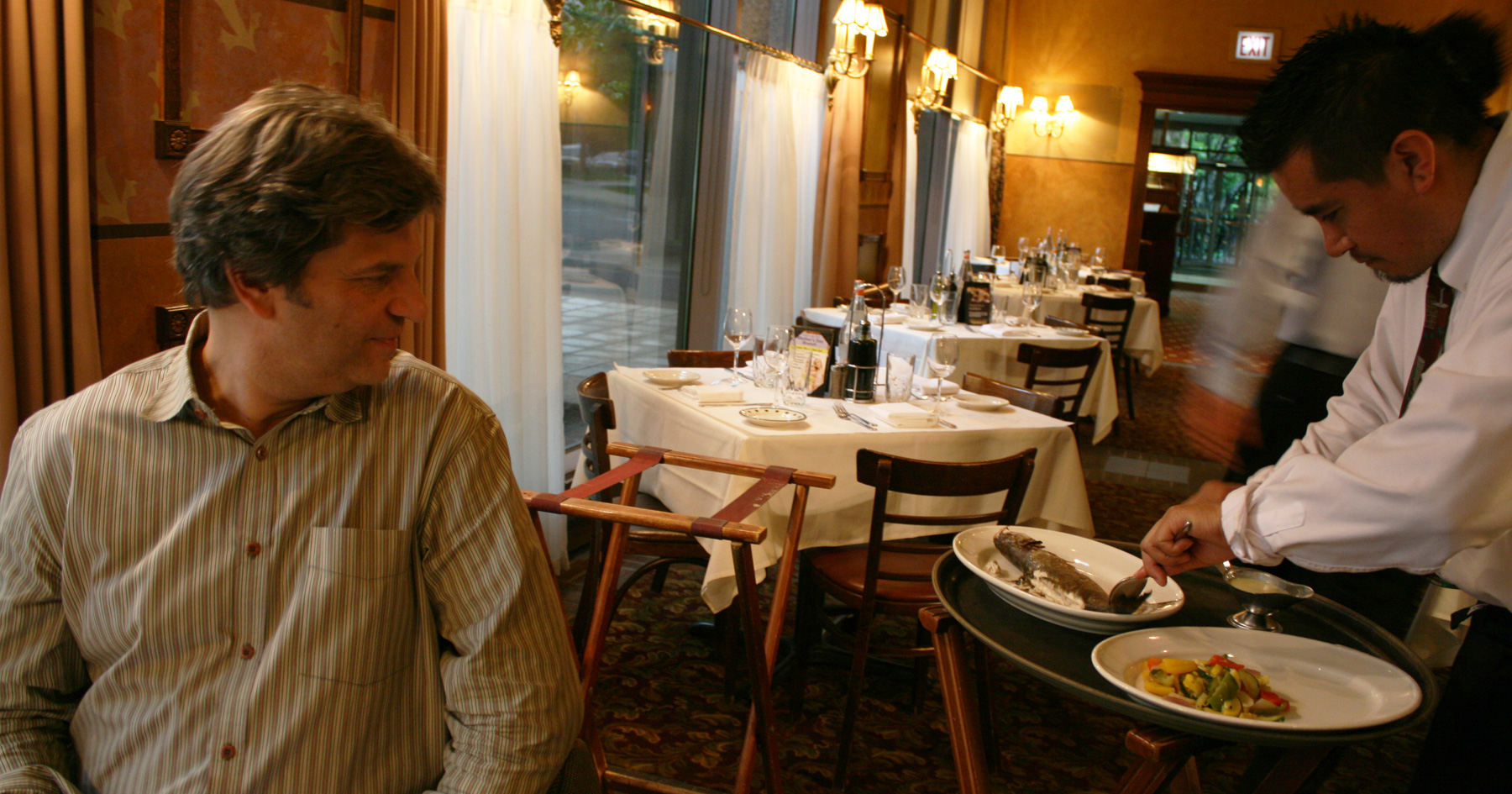The Biggest Argument Against Raising the Minimum Wage Just Got Destroyed...Again
By:
Over the last year, a number of states, cities, and individual businesses have opted to pay their workers higher wages. But many worry that those wages will strain pocketbooks, push out jobs, and end up hurting large swaths of the economy.
However, at least in the restaurant industry, where concern over raising wages has been especially pointed, modest wage hikes have not harmed the broader sector.
 Flickr/Quinn Dombrowski - flic.kr
Flickr/Quinn Dombrowski - flic.kr
Related: Does Raising the Minimum Wage Kill Jobs?
According to a new report by Cornell University's School of Hotel Administration, neither restaurants themselves nor their employees have suffered significant losses as a result of past wage hikes.
"There is no doubt that restaurateurs face higher expenses as a result of minimum wage increases, but if restaurants are raising prices to compensate, those increases do not appear to decrease demand or profitability enough to sizably or reliably decrease either the number of restaurants or the number of employees," Michael Lynn, a co-author and professor of consumer behavior and marketing, said in a press release.
 Waiting/Lions Gate Entertainment - lionsgate.com
Waiting/Lions Gate Entertainment - lionsgate.com
For the study, the researchers looked at wage increases in states between 1995 and 2014 to asses the impact on restaurants, finding that hikes have had "no reliable linear effect on the number of full-service restaurants or on full-service restaurant employment, even when looking at cumulative effects over three years."
It is important to note that the report does not included data from post-2014 minimum wage increases in cities like Los Angeles, Seattle, and San Francisco, which all passed laws to increase the wage to $15 per hour over a period of several years. The researchers said that while moderate increases have been manageable, large jumps in wages could have more of a negative effect on restaurants.
"We must underscore the limitation that these conclusions apply only to the mostly modest minimum wage increases that were implemented during the study period," the authors wrote. "Much larger increases, like the $15 minimum wage recently enacted in Los Angeles, San Francisco, and Seattle and contemplated elsewhere (including New York), may have more substantial negative effects on the industry."
Other research has suggested similar negative effects from promptly raising wages: a report by the Congressional Budget Office estimated that an across-the-board increase of the federal minimum wage could cost between 100,000 jobs for a $9 minimum, and 500,000 jobs for a $10.10 minimum.
While the current federal minimum, $7.25, has been raised a number of times since 1995, many restaurant workers who rely on tips make the federal tipped minimum wage, which is slightly over $2 and has not been raised since 1991.
Related: We Asked A Bunch Of Servers When It's Rude To Send Back Food
Still, other research by academics, policy thinktanks, and financial institutions has found that wage increases would not, in fact, cost jobs, and in some cases even lead to job creation. One study from the Center for Economic and Policy Research even found that the 13 states that increased their minimum wages in 2013 have had stronger employment growth than the 37 states that didn't.
Though the Cornell study adds to a body of evidence that can point both ways in terms of job loss, the report does undercut a central argument used by those who are opposed to the idea of raising the wage: Moderate increases will not kill the restaurant industry.
The authors also suggest a correlation between wage increases and decreased turnover and greater employee productivity, concluding "that the restaurant industry should support rather than oppose reasonable increases in the minimum wage."
